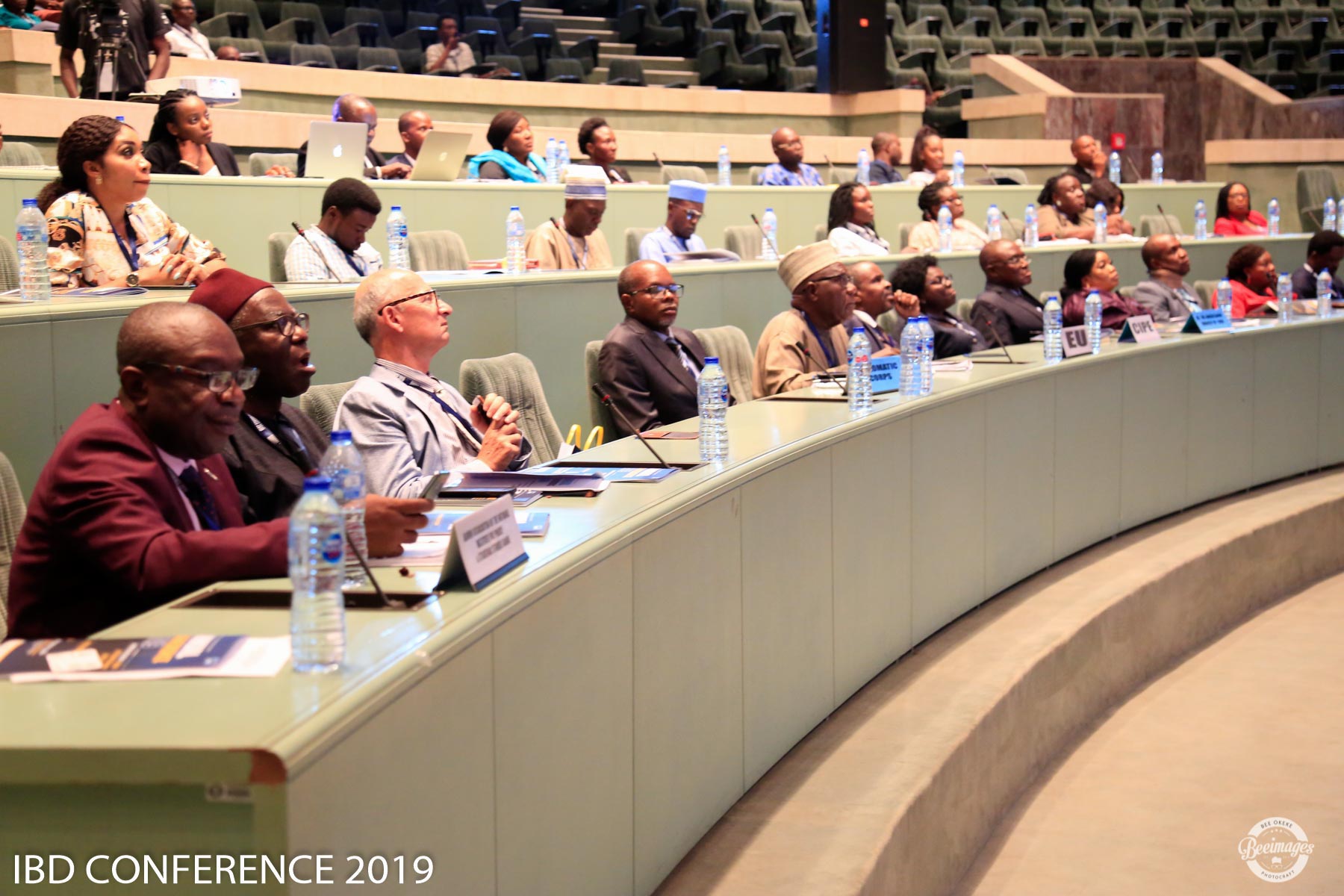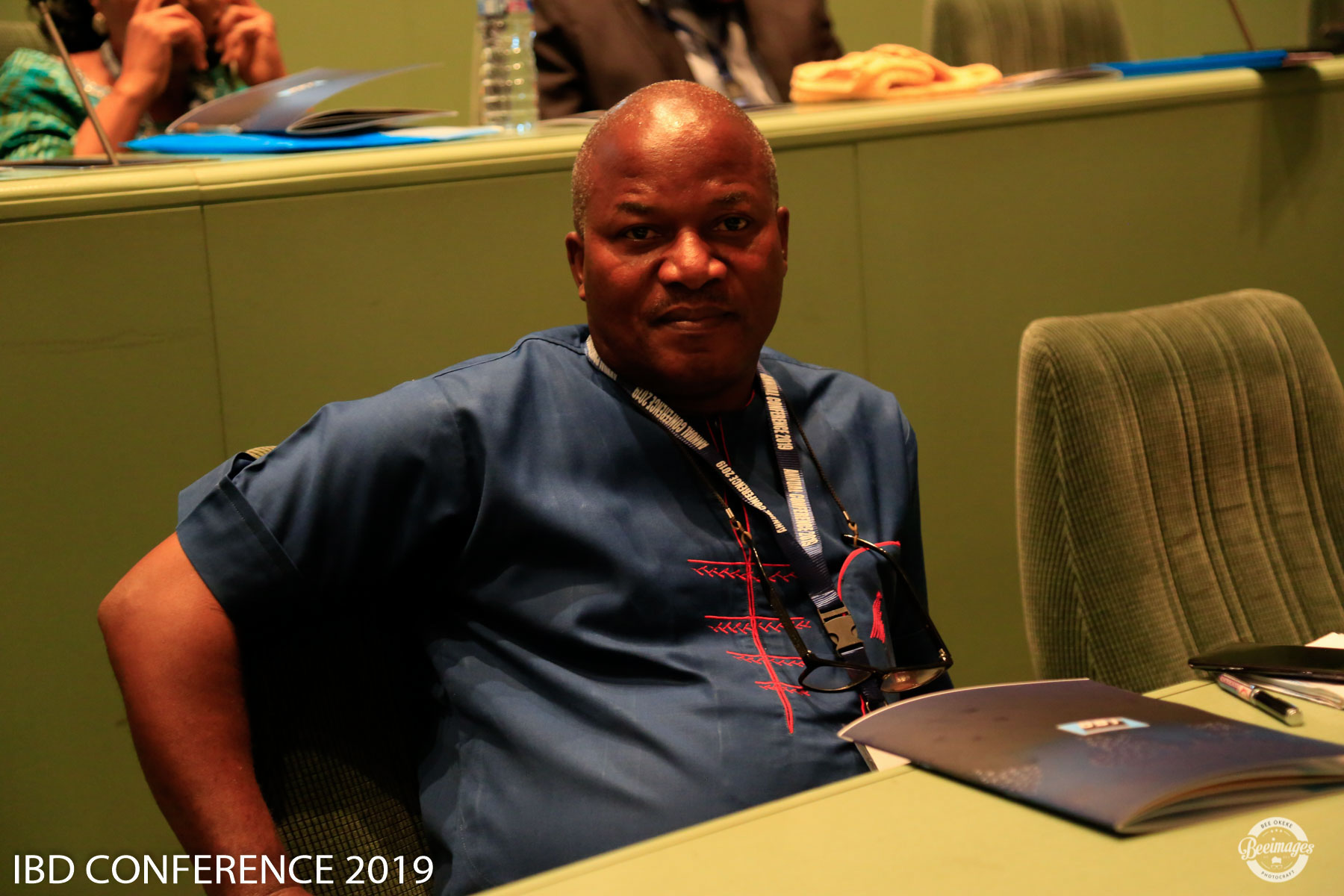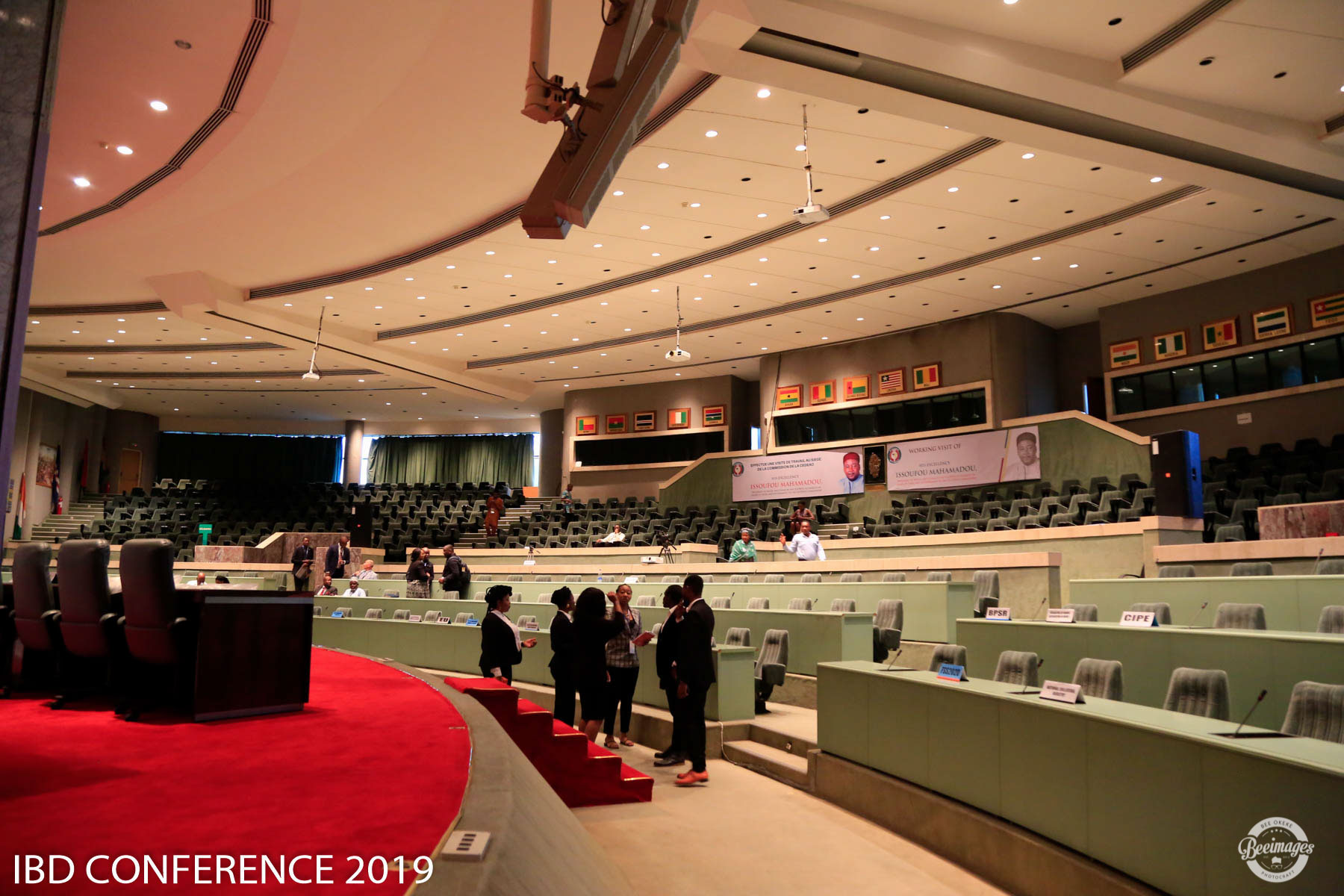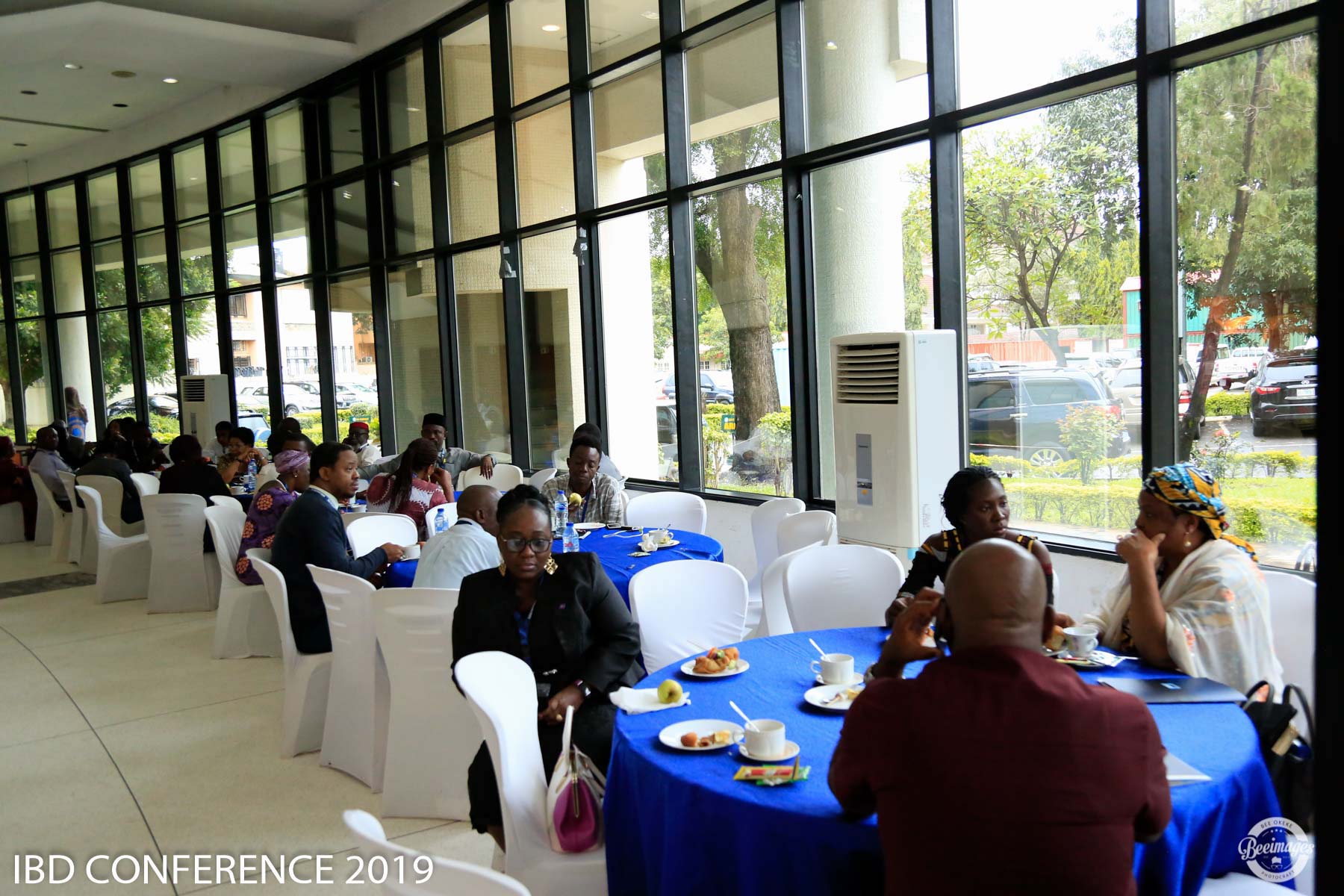About our 2023 Conference
The Annual National Conference of the Institute this 2023 is focused on Innovation in Agri-Business: Unlocking the Value Chain Potential. The Agricultural sector is seen as an engine that contributes to the growth of the overall economy of Nigeria, despite these efforts, the sector is still characterized with low yields, low level of inputs and limited areas under cultivation due to government dependence on mono-cultural economy based on oil, we are thrilled to bring together esteemed professionals, industry experts, and influential stakeholders to delve into the transformative power of agri-business in Nigeria. Let’s explore the cutting-edge strategies and technologies that can revolutionize the agricultural sector and unleash its full potential.
Agriculture has been the backbone of the economy in Nigeria providing employment and source of livelihood for the increasing population it accounts for over half of the GDP of the Nigerian economy as at independence in 1960. However, the role it plays in the regional and economic development of the country has diminished over the years due to the dominant role of the crude oil sector in the economy. With the increasing food demand in Nigeria, the country has available natural resources and potential for increasing the volume of crop production towards meeting the food and nutritional requirement of the rapidly increasing population and guarantee food security in the country. Therefore, the source of national wealth is essentially agriculture. Development economists have focused on how agriculture can best contribute to overall economic growth and modernization.
KEY OBJECTIVES OF THE CONFERENCE
• A review and analysis of Agribusiness Value Chain
• Investigate the contribution of domestic savings, government expenditure on agriculture and foreign direct investment on agriculture and the general impacts of agricultural sector on the Nigerian economy bearing in mind that the sector is fundamental to the sustenance of life and the bed rock of economic growth.
The 2023 conference will commence with a keynote address to be followed by paper presentations, panel discussions. The conference serves as the platform for exchange of knowledge, thought-provoking discussions, and actionable insights, ensuring that all stakeholders contribute to the advancement of the Nigerian agricultural sector to the benefit of our overall economic development and stability.
-
1
Introduction
The Agricultural sector is seen as an engine that contributes to the growth of the overall economy of Nigeria, despite these efforts the sector is still characterized with low yields, low level of inputs and limited areas under cultivation due to government dependence on mono-cultural economy based on oil. Agriculture was the mainstay of Nigeria’s economy before the discovery of crude oil. From 1960 to 1969, the sector accounted for an average of 57.0% of GDP and generated 64.5% of export earnings. From 1970 to late 2000s, the sector’s contribution to GDP and export earnings steadily declined, because Nigeria focus shifted to petroleum exploration. Over the past five years, the sector has contributed an average of 23.5% to GDP and generated 5.1% of export earnings.
Innovation in agribusiness value chain is a process of introducing new ideas, products, services, and processes to the agricultural sector. It involves the application of technology and innovative business models to improve the efficiency of the agricultural value chain. The value chain includes all activities involved in the production, processing, distribution, and consumption of agricultural products. Innovation in agribusiness value chain can help unlock the potential of smallholder farmers and improve their livelihoods by increasing their productivity and income. It can also help reduce food waste and improve food security by improving the efficiency of the supply chain. Agriculture has been an important sector in the Nigerian economy in the past decades, and is still a major sector despite the oil boom; basically it provides employment opportunities for the teeming population, eradicates poverty and contributes to the growth of the economy.
The Economic Community of West African States (ECOWAS) stipulated the removal of trade barriers and harmonization of trade policies. The ECOWAS trade liberation scheme (ETLS) with an agreement on agricultural, artisans handicrafts, unprocessed products and industrial products has been adopted by ECOWAS states as a framework for market and trade integration as an engine of growth to allow member states to join the ranks of emerging countries.
To achieve this goal, it is important for member states to understand and properly evaluate the challenges occasioned by the prevailing socio economic, socio cultural, socio political on the one hand and the technological, infrastructural, human capital and funding deficits that could mitigate the programme with a view to creating an enabling environment for Agribusiness where investments, operations and result activities are protected and organized. Enabling environments also include reliable structures, ease of accessing business funding and an efficient financial market. Major challenges and constraints faced by Agribusiness in Nigeria include lack of adequate funding, poor record keeping and information management, lack of proper business plan and management skills/knowledge, weak legal system (safety, protection of property rights, effective administration of justice); taxes and regulation (unfair competition, regulation); lack of crucial infrastructural facilities, corruption (quality of the relationship with public services); broader macroeconomic environment (crime, political instability, fluctuating exchange rates, inflation).
Arising from the development above, the Institute is poised to bring all the identified issues and the relevant stakeholders all on the same table for a deep introspection and dissection of the issues thereof with a view of developing a comprehensive and inclusive framework for the promotion of Agribusiness activities within the ECOWAS region as a first start to building a strong continental business that will be competitive in the struggle for global market shares. The institute in exercising their professional relevance will continue to be the mechanism and platform for the promotion of Agribusiness to contribute to the collective economic growth of Nigeria, ensure self-reliance, regional trade integration, quality and sustainable supply. Accordingly, the Institute will be holding this annual conference to bring together all the stakeholders for regional and global policy analysis, dialogue, comparative analysis and advocacy on creating enabling environment.
-
2
Purpose & Objectives
The key objectives of the conference is to create a stimulating and brainstorming presentations that will encourage and enable the revitalization of Nigerian’s economy through Agribusiness, Entrepreneurship, and Investment in Digital Age. It is argued that Nigeria’s agricultural sector requires massive investments to increase production and to create value addition across the most profitable segments of the value chain. In order to examine Nigeria’s agricultural value chain, there is need to focus on veritable Agribusinesses . Also, to develop strategies for upgrading the production and processing segments of the agricultural value chain.
Furthermore, the conference will also discuss and support the drive to increase productivity and competitiveness of the agricultural sector in Nigeria and device a means to boost Agribusiness by developing a programme of identifying young, creative entrepreneurs who will launch promising new tech solutions to transform agriculture for smallholder farmers.
This conference is of high strategic importance as it comes at a time when Nigerian Economy needs a turnaround mechanism for a productive economic system. Nigeria has the capacity to produce and export goods and services that will stimulate and build a sustainable economy. For a country, which is facing an acute shortage in food production as a result of a combination of growing insecurity, continued rise in the cost of moving farm produce to markets, instability in the nation’s foreign exchange market, and youth restlessness, any policy or programme capable of stimulating interest in agriculture will always take a centre stage in public discussion.
The conference will also provide a platform for discussion on the current Agribusiness value chain scenarios, their activities, mode of operation, key challenges encountered, opportunities identified and the way forward.
Key questions to be discussed during the conference include:
• How can small businesses at the grass root level and the challenges confronting them be properly captured in the national business database?• Who are the stakeholders and what roles do they play in the development of sustainable Agribusiness ecosystem?
• How can we build synergies around the stakeholders to promote the Agribusiness development and stimulate international trade to attract foreign investors?
• How can we develop viable business groups that can compare and compete favorably with their counterparts globally?
• Does the present state of the business environment in Nigeria promote sustainability?
• How can we create a patient back-end capital funding for Agribusiness?
• How do we guarantee the security of Agribusiness loan?
• What are the main constraints that affect Agribusiness in Nigeria?
• What priority reforms should be put in place in order to remove the major constraints to healthy and smooth business practices in Nigeria?
• What need to be done to spur growth in the private sector in Nigeria?
• How can we ensure mass affordability, appeal and availability of standard goods and services?
-
3
Expected Results
• Common understanding of Agribusiness and its Value Chain.
• Experiences on approaches towards creating and promoting an enabling environment in Agribusiness.
• Agreement on the role of stakeholders in Agribusiness for regional trade integration.
Conference structure
The conference will have two main components:
(i) Plenary Session presentations
(ii) Panel discussions
Conference set-up
The conference will consist of an opening session, Key note, plenary sessions and Panel discussions. Furthermore, there will be a session for all the participants to share their experiences, challenges and achievements towards the themes presented.
Conference schedule
This schedule is subject to change; however any changes will be communicated to all attendees via mail.
Registration

SESSION 1: Opening

Welcome Remarks -MC
Opening Address -The Registrar/CEO
Special Address - The President of the Institute
Presentation of conference objectives, expected outcome and agenda- The Conference Chairman
Keynote Address :
TOPIC:
Paper 1:
Coffee Break
Paper 2:
Lunch

Panel Discussions, Q & A, Comments from participants.

Topic 1:
Topic 2:
Topic 3:
Topic 4:
Closing & departure


SESSION 1: Opening
Opening and Review of Day 1 Presentations
Paper 3:
Tea Break

Panel Discussions

Lunch
Speeches / Goodwill Messages
Regulators
Policy Developers
Funding Agencies
Support Institution
Institutional Development Partner
Practitioners
Informal Trader Groups
Paper 4:
Closing of day activities

SESSION 1: Opening
Opening and Review of Day 2 Presentations
Paper 5:
Tea Break

Break Out Session

Report from breakout sessions

Lunch
Speeches / Goodwill Messages
Regulators
Policy Developers
Funding Agencies
Support Institution
Institutional Development Partner
Practitioners
Informal Trader Groups
Discussion and agreement on key areas of action for incorporation in the communique document
Debate and adoption of the outcome document
Presentation of the outcome communique document
Closing and Departure
Interlude and relocation of delegates to Dinner Venue
Registration for Dinner
Dinner Activities
Awards
Induction of Fellows
Music and Dancing
Closing
Post Conference Activities
Special Guests
Highly qualified & competent personalities will be speaking at the conference.

His Excellency Bola Ahmed Tinubu, President and Commander In Chief of the Armed Forces Federal Republic of Nigeria

His Excellency Godswill Akpabio, Senate President Federal Republic of Nigeria

His Excellency Abubakar Kyari, Minister of Agriculture and Food Security

His Excellency Nyesom Wike Minister of Federal Capital Territory of Nigeria
Conference Speakers
Highly qualified & competent personalities will be speaking at the conference.

Dr. Paul Ikele
Speaker

Prof. Ikechukwu James
Speaker

Prof. Ben Oghojafor
Speaker

Monday Ewans
Speaker

Mr. Tijjani St. James
Speaker
Conference Sponsors
The following organizations are sponsors of the 2023 Annual IBD Conference.













CONFERENCE VENUE
LINKS HOTEL
B5, Plot 1078, Cadastral Zone,
off N Okonjo-Iweala Way,
Abuja
RSVP: (+234) 08080795347
For any enquiries contact the number above.
Connect with us
Follow us on social media to receive updates on the conference.



















































































































































